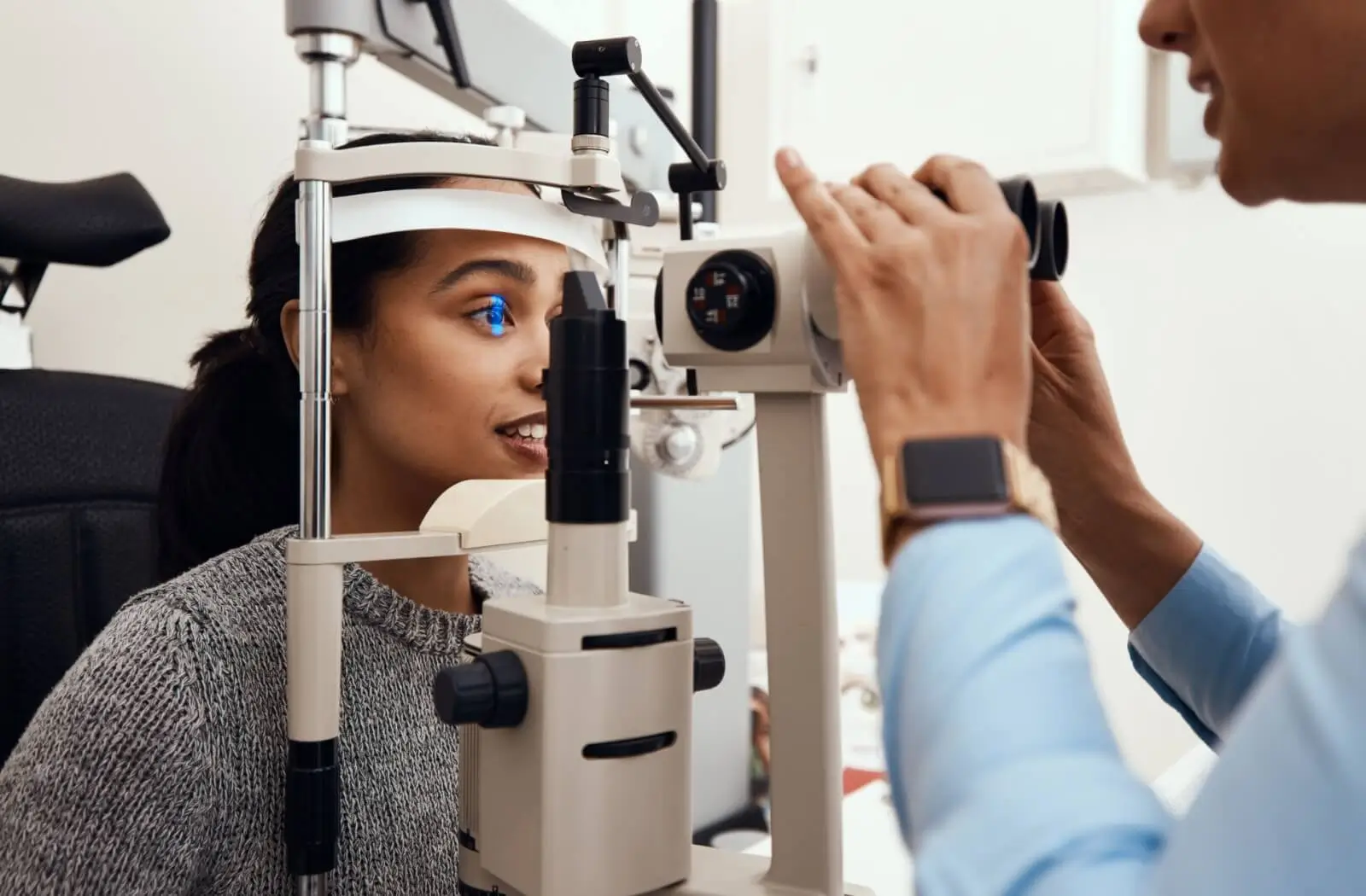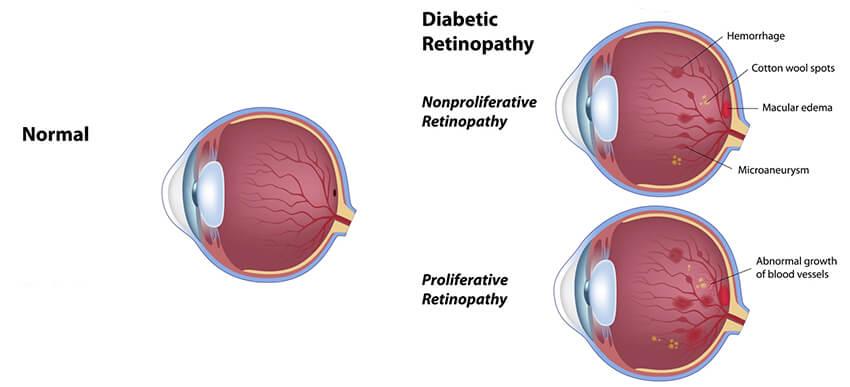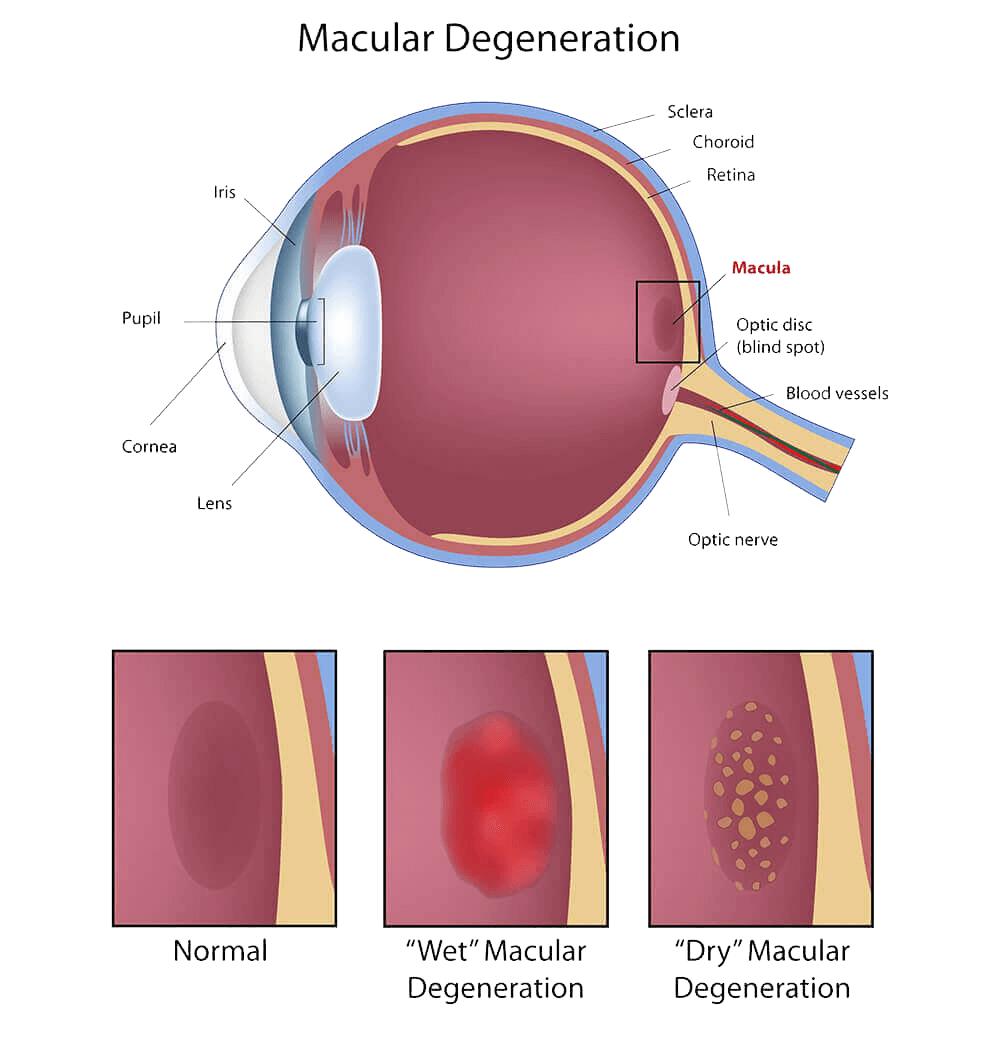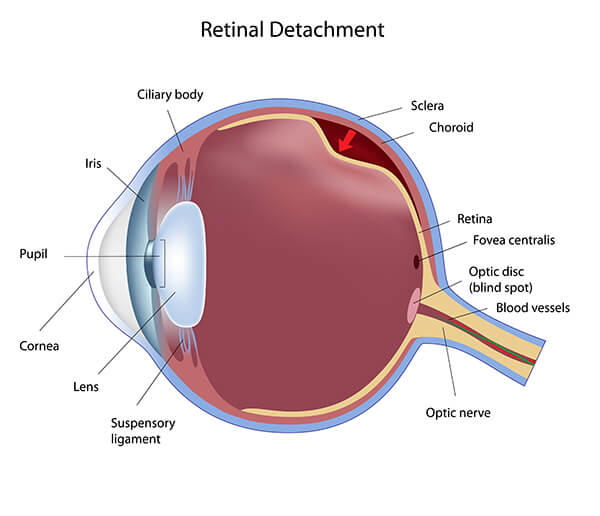
Advanced Retina Care
Expert Diagnosis and Treatment for Retinal Conditions
Understanding the Retina and Its Role in Vision

The retina is a delicate, light-sensitive layer at the back of the eye that plays a crucial role in vision. It contains specialized photoreceptor cells that convert light into electrical signals, which are then transmitted to the brain via the optic nerve to create the images we see.
When the retina is damaged due to disease, aging, or injury, it can lead to partial or complete vision loss. However, with advanced diagnostics and cutting-edge treatments, the retina specialists at Ascend Vision Partners can slow or prevent vision deterioration—and in some cases, even restore lost sight.
Our expert team is dedicated to protecting and preserving your vision with personalized, state-of-the-art retinal care.
Retinal Conditions & Treatments
The retina is essential for clear vision, but various conditions can threaten its health. Diabetic retinopathy occurs when high blood sugar damages retinal blood vessels, leading to vision loss. Macular degeneration affects central vision, making tasks like reading difficult. Retinal detachment is a serious condition where the retina pulls away from the eye, requiring urgent treatment. Intravitreal injections deliver medication directly into the eye to manage diseases like macular degeneration and diabetic retinopathy. At Ascend Vision Partners, our specialists provide advanced care to diagnose, treat, and help preserve your vision.
Diabetic Retinopathy
Protecting Your Vision from Diabetes-Related Eye Damage
The Link Between Diabetes and Vision Loss
Diabetes affects more than just blood sugar levels—it can also impact your eyesight. High blood sugar can damage blood vessels throughout the body, including those in the eyes. This damage can lead to serious vision problems, including cataracts, glaucoma, and most critically, diabetic retinopathy.
Regular eye exams (recommended annually) are essential for detecting early signs of diabetes-related vision changes.

What is Diabetic Retinopathy?
Diabetic retinopathy is a complication of diabetes that affects the retina—the light-sensitive layer at the back of the eye responsible for sending images to the brain. When retinal blood vessels are damaged, they may leak fluid or blood, form fragile branches, or develop scar tissue. This can blur or distort vision and, if left untreated, lead to blindness.
As the leading cause of new blindness in U.S. adults, diabetic retinopathy is a serious concern for those with diabetes. The longer you have diabetes, the higher the risk—nearly 80% of people who have had diabetes for 15 years or more show some level of retinal damage.
Early Detection Can Prevent Vision Loss
Advancements in diagnosis and treatment mean that with proper monitoring and care, most people with diabetic retinopathy can avoid severe vision problems. If you have diabetes, regular eye exams and timely treatment are your best defense in preserving your sight.
Macular Degeneration
Preserving Your Central Vision for a Clearer Future
Macular degeneration is a progressive eye condition that affects the macula, the small but crucial part of the retina responsible for sharp central vision. When the macula deteriorates, it leads to blurriness or dark spots in the center of vision, making everyday activities like reading or recognizing faces difficult.

While macular degeneration does not cause complete blindness, it significantly impacts a person’s ability to see fine details.
Types of Macular Degeneration
The two most common forms of age-related macular degeneration (AMD) are:
- Dry Macular Degeneration (Atrophic): This is the most common type, caused by gradual thinning of the macular tissues due to aging. Vision loss typically progresses slowly.
- Wet Macular Degeneration (Exudative): Less common but more severe, this form occurs when abnormal blood vessels develop beneath the retina. These vessels can leak fluid or blood, leading to rapid and severe vision loss.
Treatment & Management
While there is currently no cure for macular degeneration, treatments can help slow its progression and preserve vision. For dry macular degeneration, some research suggests that certain nutritional supplements may help. For wet macular degeneration, injectable medications such as Lucentis, Avastin, and Eylea, along with photodynamic therapy, are commonly used to manage the condition. Ongoing clinical trials continue to explore new treatment options for both forms of AMD.
Living with Macular Degeneration
Since side (peripheral) vision remains intact, many people with macular degeneration can maintain their independence with the help of low-vision aids such as magnifiers, large-print materials, and adaptive technology.
Retinal Detachment
Protecting Your Vision from Sudden Sight Loss
The retina is a thin, light-sensitive layer of nerve tissue at the back of the eye. It captures images and sends visual signals through the optic nerve to the brain. Retinal detachment occurs when the retina separates from the back of the eye, disrupting this connection.
Without prompt treatment, permanent vision loss can occur. In some cases, small retinal tears can develop first, which may lead to detachment if left untreated.
Causes & Risk Factors
Retinal detachment can result from trauma, diabetes, or inflammatory conditions, but it is most commonly linked to a natural aging process called posterior vitreous detachment (PVD). The vitreous gel inside the eye changes over time, becoming thinner and more mobile. As it separates from the retina, it may cause flashes of light, floaters, or—in severe cases—a retinal tear, which can progress to detachment.

Symptoms to Watch For
Retinal detachment is painless but has early warning signs:
- A sudden increase in floaters (dark spots or cobweb-like shapes)
- Flashes of light in the peripheral vision
- Blurred or shadowy vision
- Gradual loss of side (peripheral) vision
- A dark curtain or shadow moving across your field of view
If you experience any of these symptoms, seek immediate medical attention.
Treatment Options
There are several effective treatments for retinal tears and detachment:
- Cryopexy: A freezing treatment that creates a scar to help reattach the retina.
- Laser Surgery: Seals retinal tears or holes to prevent further damage.
- Pneumatic Retinopexy: A gas bubble is placed in the eye to push the retina back into place.
- Vitrectomy: A more advanced surgical procedure to remove vitreous gel and reposition the retina.
Early detection and treatment can significantly improve the chances of restoring vision. If you are experiencing symptoms of retinal detachment, contact Ascend Vision Partners for an urgent evaluation.
Intravitreal Injections
Post-Treatment Care & When to Seek Help
Intravitreal injections are a common and effective treatment for various retinal conditions, including macular degeneration, diabetic retinopathy, and retinal vein occlusion. Following proper post-injection care is essential for a smooth recovery and to minimize the risk of complications.

Post-Injection Care Instructions
- Do not rub your eye after treatment.
- For mild discomfort or irritation, use an over-the-counter pain reliever (e.g., Tylenol) or apply a cool compress/ice pack.
- Use a new bottle of artificial tears or lubricating drops to soothe dryness.
- Avoid swimming and wearing contact lenses for 2 days.
- You may shower and wash your face, but keep your eyes closed to avoid tap water exposure for 2 days.
Common Post-Treatment Symptoms
- Blurry vision
- Tearing or watery eyes
- Mild floaters or dark circles/bubbles in vision
- Gritty sensation, like an eyelash in the eye
- Mild to moderate irritation or discomfort
- Redness, which may cover the entire white part of the eye (especially if taking blood thinners or aspirin)
- Bloody tears for 1-2 days after treatment
When to Call Our Office Immediately
- Severe, constant pain
- Pain worsening after the first day
- Significant decrease in vision
- A sudden, severe increase in floaters
- A curtain or veil in your vision
Prioritize Your Retinal Health
Protecting your vision starts with a comprehensive eye exam. At Ascend Vision Partners, we provide thorough retinal evaluations for patients of all ages. Whether you need a routine checkup or specialized care for retinal conditions, our expert team is here to help. Schedule an appointment today to safeguard your vision and maintain lifelong eye health.